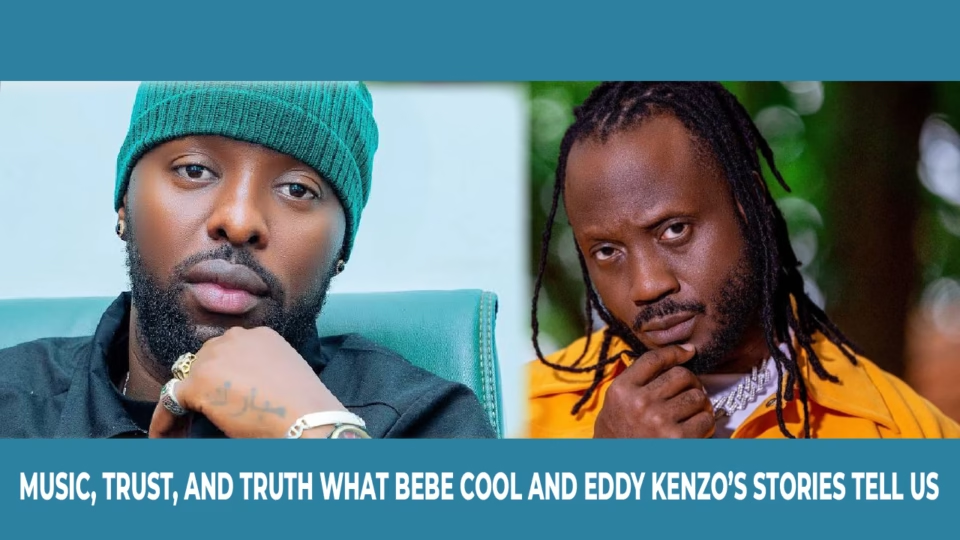Music in Uganda is more than just entertainment—it’s a powerful voice that tells stories of struggle, hope, and triumph. Two of Uganda’s biggest stars, Bebe Cool and Eddy Kenzo, have not only made waves with their music but have also stepped into the political arena by engaging directly with President Yoweri Museveni.
Their journeys, dreams, and recent revelations have stirred conversation among fans and the public alike—raising important questions about promises made, transparency, and the realities behind the spotlight.
Bebe Cool has long been a vocal advocate for Uganda’s music industry. At one point, he approached President Museveni with an ambitious vision: to build a modern, well-equipped music studio in Uganda. This facility, he argued, would empower local artists to produce top-quality music at home, reducing the need to record abroad.
President Museveni reportedly embraced the idea and approved financial support for the project. The music community was hopeful—a new studio could be a game-changer.
But recently, the President revealed something unexpected: he has not received any update or feedback from Bebe Cool about the studio. No progress reports. No evidence of construction. Nothing.
For many young musicians and fans who pinned their hopes on this initiative, the silence has been disheartening. It raises the question: what happened to the studio? If the plan fell through or was delayed, why hasn’t Bebe Cool addressed it publicly?
Transparency on this matter is key, not only to restore trust but also to show respect for the wider music community counting on such opportunities.
Eddy Kenzo is a name synonymous with perseverance. His rise from selling water on the streets to becoming an internationally recognized artist has inspired countless Ugandans. His personal story of hardship and determination has been a beacon of hope, proving that greatness can emerge from even the toughest circumstances.
However, a recent statement from President Museveni introduced a twist. The President claimed that Eddy Kenzo’s father is commander Chefe Ali, a senior military figure.
This revelation caught many off guard. If Kenzo is the son of a high-ranking official, why has he often spoken about growing up in poverty and hardship? Is there more to his story than has been shared publicly?
Life can be complicated. Many children of prominent figures experience strained relationships or lack of support, which could explain Kenzo’s narrative. Nonetheless, fans who connected deeply with his story now seek clarity to reconcile these differences.
These aren’t just celebrity gossip stories—they touch on issues of trust, representation, and authenticity. Both Bebe Cool and Eddy Kenzo have served as voices for ordinary Ugandans, using their platforms to inspire and advocate.
When they seek support from the President, they speak not just for themselves but for an entire generation of artists and fans. So, when promises remain unfulfilled or stories seem inconsistent, it shakes the faith of many.
At the same time, it’s important to recognize that behind the fame are human beings with complex lives. Honest dialogue and openness can help bridge the gap between public perception and reality.
What comes next is simple: honesty and accountability.
Bebe Cool owes the public an update on the studio project—whether it’s a delay, a change in plans, or obstacles faced. Eddy Kenzo’s fans deserve clarity about his background and the truths behind his journey.
These conversations don’t diminish their achievements. Instead, they humanize the artists and deepen the connection between them and their supporters.
Uganda’s music industry thrives on dreams and resilience. For these dreams to grow, they must be built on foundations of trust and truth.
Music has the power to unite, inspire, and transform. Artists like Bebe Cool and Eddy Kenzo have carried that power on their shoulders.
But with influence comes responsibility—not just to entertain, but to be honest, transparent, and accountable.
Ugandans are listening. They believe in the stories, the music, and the artists who tell them. Now, more than ever, those artists must honor that belief.



